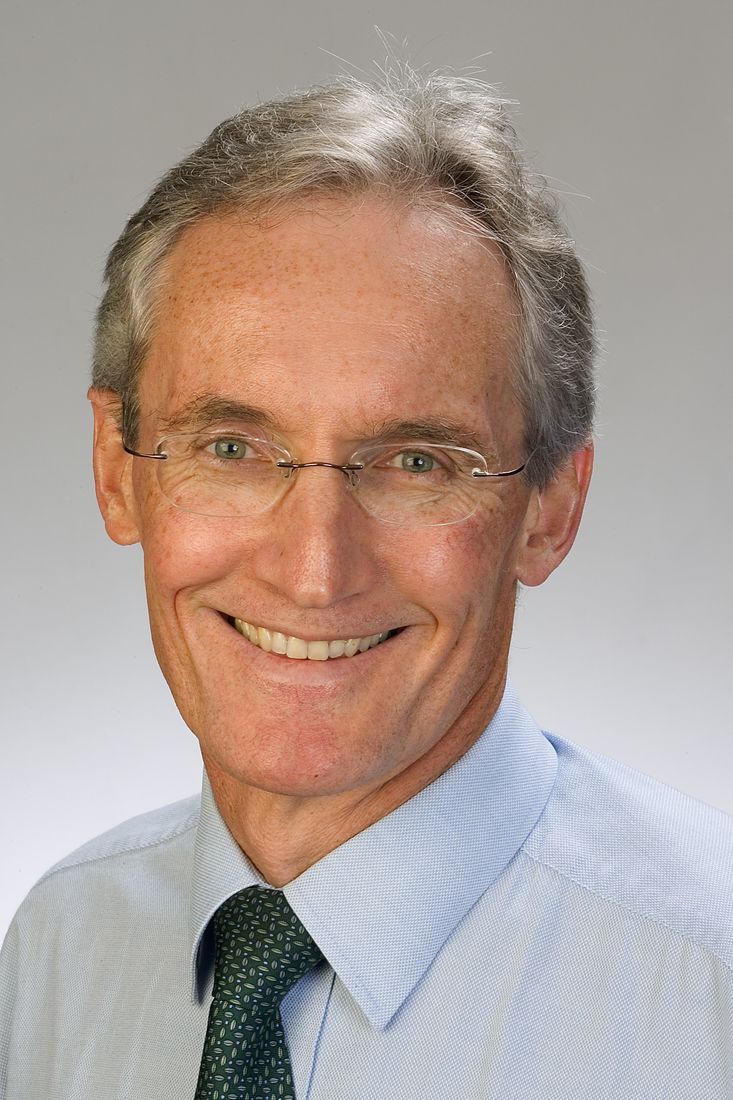
| Professor Geoffrey A Donnan ( Senior Advisor)
|
 | Professor Graeme J Hankey ( Senior Advisor)
Professor Graeme J Hankey, MBBS, MD, FRCP, FRCPE, FRACP, FAHA is Professor of Neurology, School of Medicine and Pharmacology, The University of Western Australia; Consultant Neurologist, Sir Charles Gairdner Hospital, Perth, Western Australia; Clinical Trials Advisor, Harry Perkins Institute of Medical Research, Western Australia; and Research Affiliate and Honorary Senior Research Fellow, Western Australian Neuroscience Research Institute. |
| Professor Chris Levi ( Senior Advisor)
|
| Professor Peter Mitchell (Senior Advisor) |
| Associate Professor Jim Jannes ( Senior Advisor)
Jim Jannes is an Associate Professor at the University of Adelaide School of Medicine and works as a Senior Consultant Neurologist and Head of the Stroke Unit at The Queen Elizabeth Hospital. He served as the inaugural chair of the South Australian Stroke Clinical Network and has provided significant contribution to the development and implementation of stroke services in South Australia. |
| Prof. Vincent Thijs (Senior Advisor)
Vincent Thijs is the Head of Stroke at the Austin Health since 2015. He recently moved from Belgium where he headed the Stroke Unit at the University Hospitals in Leuven. He was a professor at the Department of Neurosciences at KULeuven and a research fellow at the VIB (www.vib.be). He was twice awarded a Clinical Investigatorship by the FWO (main research fund in Flanders). His research interests include acute stroke treatment, stroke prevention, young stroke, the genetics of atrial fibrillation and stroke, and neuroimaging. Professor Thijs completed a PhD on magnetic resonance imaging in stroke, and has served on the steering committee of several acute stroke clinical trials (WAKE-UP, SCAST, MITI-IV and AXIS) and secondary prevention trials (SOCRATES, RE-SPECT ESUS and REACT-AF). Professor Thijs is a member of the International Stroke Genetics Consortium and an editorial board member of Stroke journal and the European Stroke Journal. He has authored or co-authored more than 170 peer-reviewed papers on stroke. |
| Professor Christian Lueck ( Senior Advisor)
Professor Christian Lueck is a neurologist at the Canberra Hospital and an Associate Professor at the Australian National University Medical School (ANUMS). He is a dedicated and exceptionally well-regarded teacher of medical students at all levels and, in addition, is recognised nationally as an enthusiastic and influential teacher of neurology and neuro- ophthalmology at a post-graduate level. Since 2003, he has led the development of the neurology curriculum of the new ANUMS which first took students in 2004. In addition to overseeing this curriculum development, he created the senior medicine and surgery term and has introduced novel approaches into the examination process in the final year. He is responsible for organising annual post-graduate training weekends for advanced trainees in neurology and neuro- ophthalmology. He has co-authored a textbook chapter on neurology which is used by medical students around the world, and has published two papers specifically related to learning in his discipline. He has been awarded several prizes for his teaching, a major focus of which is to assist students and post-graduate doctors learn how to apply their knowledge more effectively when diagnosing and managing patients. |
| Professor David Blacker ( Senior Advisor)
Professor David Blacker is a Neurologist and Stroke Physician at Sir Charles Gairdner Hospital (SCGH),Visiting Neurologist to the Royal Perth Rehabilitation Hospital, Clinical Professor of Neurology at the University of Western Australia (UWA) and Visiting Medical Officer to Hollywood Private Hospital. Professor Blacker completed his Bachelor of Medicine, Bachelor of Surgery at UWA in 1991 and went on to specialise in neurology, practicing in WA teaching hospitals and then spending two years at the Mayo Clinic, Rochester, Minnesota, USA as a Cerebrovascular Diseases Fellow. He then returned to Perth in 2003 and focused on stroke -from acute stroke management to rehabilitation approaches and research. Professor Blacker is presently involved in a number of local, national and international stroke studies and is a member of the Australasian Stroke Trials Network Executive Committee and the Australian Stroke Coalition Acute Stroke Services Committee.Appreciating the vital importance of diagnosing stroke quickly in patients presenting to hospital and minimising the time taken to provide life saving treatment, Professor Blacker has been responsible for significant improvements in this regard and was recognised in 2005 with a West Australian Health Department Patient Safety Award for the developing the Code Stroke Team at SCGH. |
| Dr Stephen J Read ( Senior Advisor)
Dr Read is a Visiting Neurologist at St Andrew’s War Memorial Hospital in Brisbane, and a Senior Lecturer, School of Medicine, University of Queensland.
He graduated from the University of Queensland in 1988, before training in neurology at the Royal Brisbane Hospital, and obtaining the FRACP in 1996. Between 1996 and 1998 he was a Stroke Research Fellow at the National Stroke Research Institute, Austin Hospital, Melbourne, working under the supervision of Prof. Geoffrey Donnan, and was awarded a PhD from the University of Melbourne in 2000.
After returning to Brisbane in 1999 he worked as a Visiting Neurologist at Royal Brisbane & Women’s Hospital, and was involved in establishing the Stroke Unit at RBWH in 2001, leading the unit from 2001-2007. Alongside the clinical service he helped establish a program of clinical stroke research which included cross-disciplinary collaborations with local and interstate investigators.
He left the RBWH in 2011 to work full-time in private practice at St Andrew’s Hospital, but continues to be involved in a range of research activities, has helped supervise a number of post-graduate students to higher degrees, and continues to teach undergraduate medical students from UQ.
|